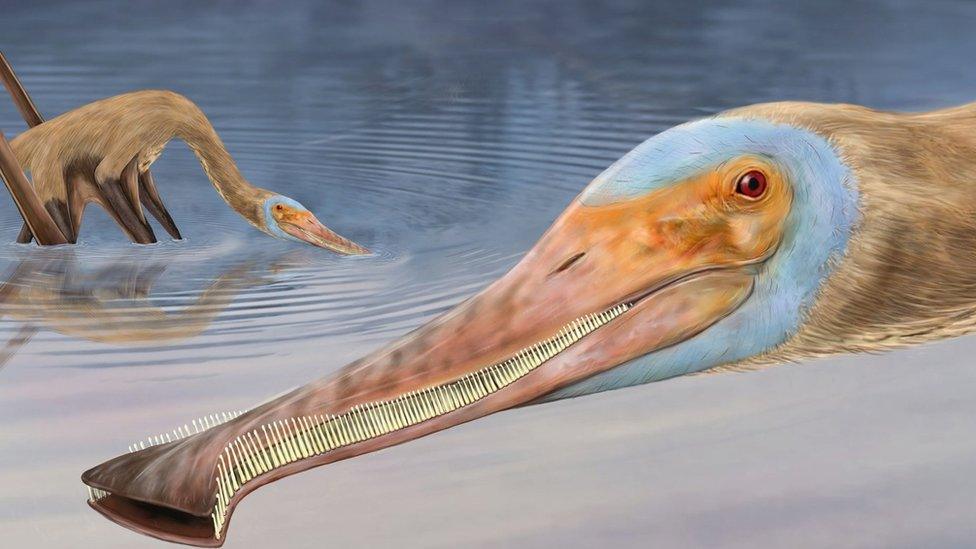Pterosaurs: Newly discovered species had over 400 teeth
- Published
- comments

Look at that bill!
Over 400 hundred teeth and eating like a duck - this is what we know so far about a new species of pterosaur, discovered in Germany!
The ancient flying reptile was discovered by a research team from the University of Portsmouth who were looking at a fossil.
This fossil was found by accident, whist the team were looking at crocodile bones in a quarry.
Lots of pterosaurs have been found in limestone in Germany's Bavaria region in the past - the quarries are famous for Jurassic discoveries.
Pterosaurs are not dinosaurs (or birds for that matter), but they are close relatives of them and they lived at the same time.
Newly discovered pterosaur
The creature was a part of the pterosaur family - like the Pteranodon, shown here!
The pterosaur that was found has been named the Balaenognathus maeseri.
The research team think it fed a bit like a duck or a flamingo, by waddling around small ponds and rock pools in search of food.
Pterosaurs were prehistoric flying reptiles with wings and bird-like beaks.
They existed from about 225 to 65 million years ago
Although they shared a common ancestor and lived at the same time as dinosaurs, pterosaurs weren't dinos.
There are over 200 species of pterosaur - and the biggest has a 35-foot wingspan!
As well as its huge name, it also had a huge amount of teeth! This pterosaur had over 400 thin, sharp teeth.
"The jaws of this pterosaur are really long and lined with small, fine, hooked teeth, with tiny spaces between them like a nit comb" said Professor David Martill, who has been leading the research.
Hooked teeth
Here you can see part of the fossil, discovered in the limestone
The team think they might have made an exciting new discovery on this find - some of the teeth have a hook on the end of them.
Professor Martill thinks the pterosaur would have used these hooks to catch tiny shrimp to eat.
He thinks the creature waded through lagoons and filtered through tiny shrimp and creatures with its teeth.
- Published25 January 2023
- Published24 January 2023
- Published24 January 2023
